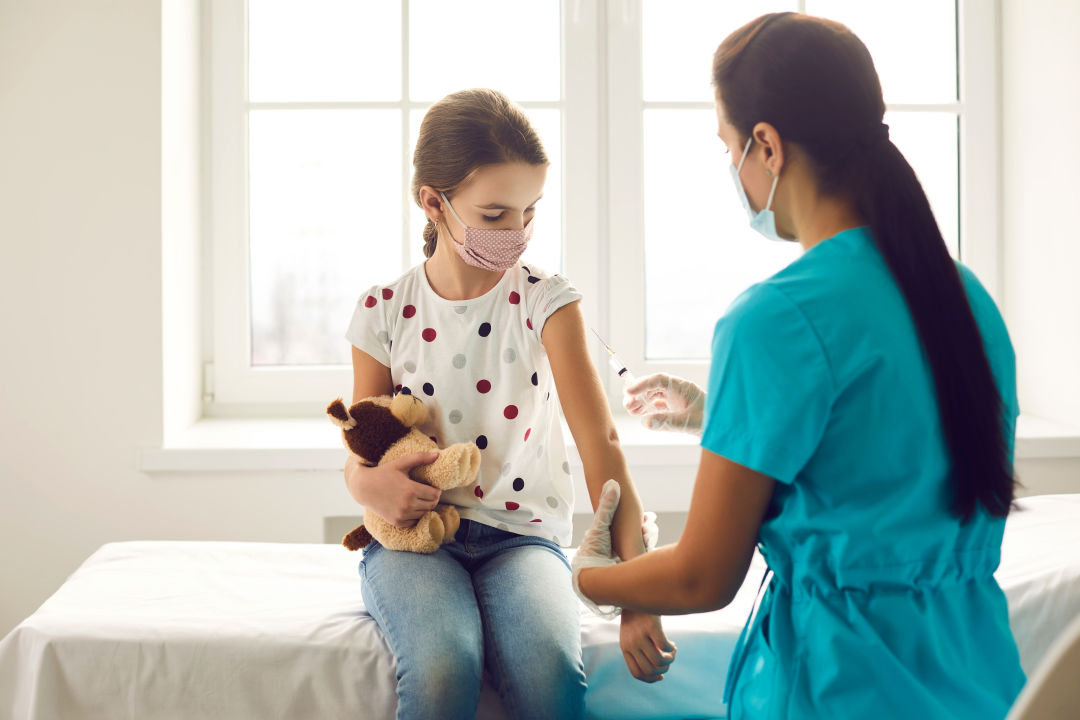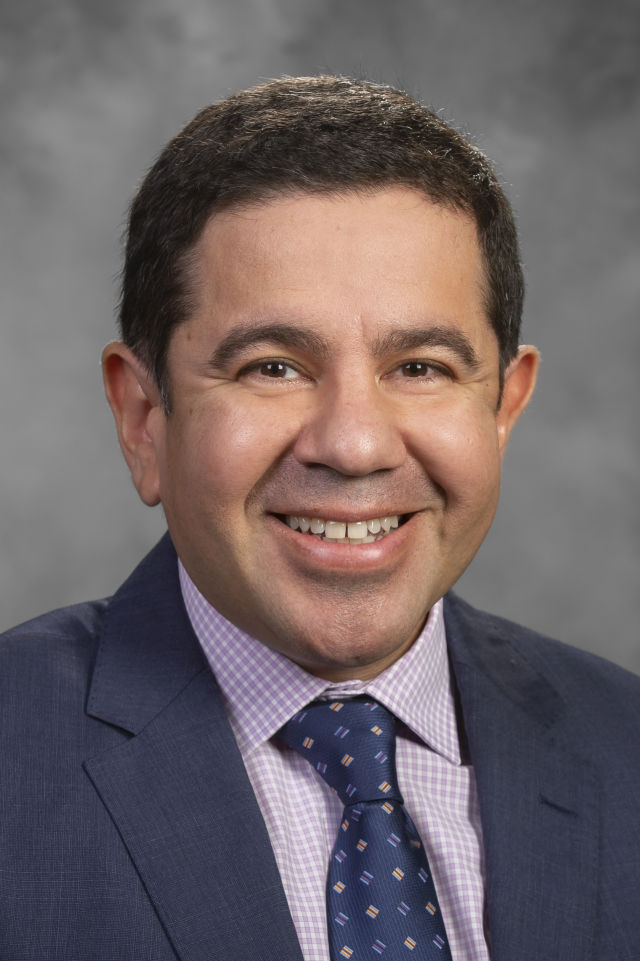What You Need to Know About Covid-19 Vaccines for Kids Under 5

Earlier this month, the U.S. Food and Drug Association authorized the use of Covid-19 vaccines for children between the ages of 6 months and 5 years old. The move has brought relief to communities hurt by the virus and to parents worried for their children's health.
The release, however, has also raised questions and concerns. Dr. Fernando Bula, an infectious disease physician at Johns Hopkins All Children's Hospital in St. Petersburg, recently spoke with Sarasota Magazine about the new kids' vaccines.

Dr. Fernando Bula.
Image: Courtesy Photo
Is the Covid-19 vaccine safe for kids?
"Yes, this vaccine is very safe," says Bula. "Studies with the mRNA vaccine, Pfizer and Moderna, have proven to be safe and effective against the coronavirus and its variants."
Bula says thousands of children in the United States and worldwide have already received the vaccine and that regulatory institutions would not administer it if it was not safe to give.
"I am also a parent to a 3-year-old, who was a volunteer in the Moderna trial for children," says Bula. "We just received news that she got the vaccine and not the placebo. I have full confidence in this process."
How are Covid vaccines for kids different from adults?
"The difference is the amount in each dose," says Bula. "Children should either get three doses of the Pfizer vaccine or two doses of Moderna. This is currently the recommendation for adults, too."
An article by Michigan Health says the Moderna vaccine for children under 5 contains one-quarter of the dose given to adults and Pfizer contains one-tenth of the adult dose. That is 50 micrograms of mRNA compared to 100, and 10 micrograms compared to 30, according to the Mayo Clinic.
What are the side effects?
"Side effects documented are mild and seen in the first few days after injection," says Bula. "Similar to the ones seen in adults, kids could experience swelling at the injection site, fever and fatigue—kids won't be as active as they usually are. These typically resolve in a few days."
Bula says that over-the-counter ibuprofen or acetaminophen like Motrin or Tylenol can be used to help relieve side effects.
Should healthy children get vaccinated?
"We have seen severe cases of Covid here at All Children's, even in otherwise healthy children and adolescents," says Bula. "There has been a lot of misinformation that the virus is less severe in kids and that is not completely accurate."
"We don't have a way of predicting which child will be severely effected, and we don't know what's going to happen in the next few years with long-term effects and new variants," he says. "This is why initial protection against Covid with vaccines is important, and may become a yearly vaccine like the flu."
What about immunocompromised children?
Bula says that it's highly recommended to vaccinate immunocompromised children. He says they are more likely to be hospitalized and have complications from the virus, so protecting them is vital. Immunocompromised children would include those with autoimmune disorders, cancer, diabetes and other conditions.
Can children get the Covid vaccine and other vaccines at the same time?
"Yes, and, in fact, this is recommended," says Bula. "There has been an overall downtick in the routine immunizations due to the pandemic. Review with your child's pediatrician what vaccines they need next."
According to the Mayo Clinic, Covid injections are given three to eight weeks apart for ages 6 months to 4 years old. Children can get routine vaccinations (see a list of them here) in one arm and Covid vaccines in the other, at the same appointment.
Is one brand better than the other?
"At this point in time, there is no reason to choose one brand over the other," says Bula. "It is really a matter of availability. Choose the one that is most available to you. Talk with your pediatrician if you have concerns about one versus the other."
Can children suffer from long Covid?
Long Covid, or long-term effects suffered from a Covid infection, can present in children. Bula has seen patients with fatigue. Children who were once very active, even athletes, became lethargic.
"They lose concentration and focus, making it harder to participate in activities," says Bula. "Some even have prolonged low-grade fevers."
Bula says the good news is that vaccines have been shown to prevent and reduce long Covid.
What about parents who are still unsure?
"Talk to your pediatrician," Bula urges. "They will help you decipher all of the misinformation online. They are your best resources."
"As a parent, I do not want my child or any child developing severe Covid or long-term complications," says Bula. "Now, we have the tools to prevent that."



